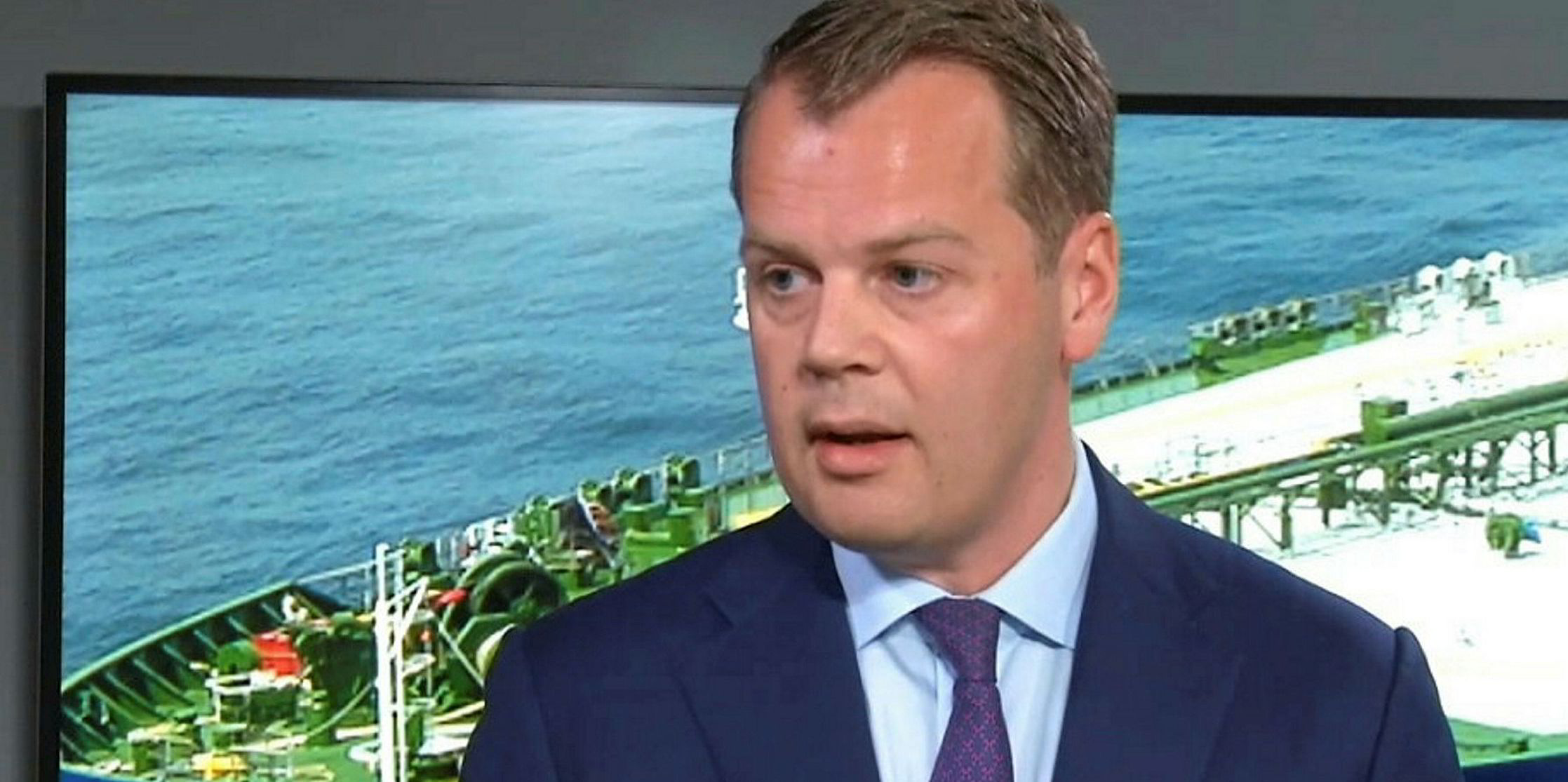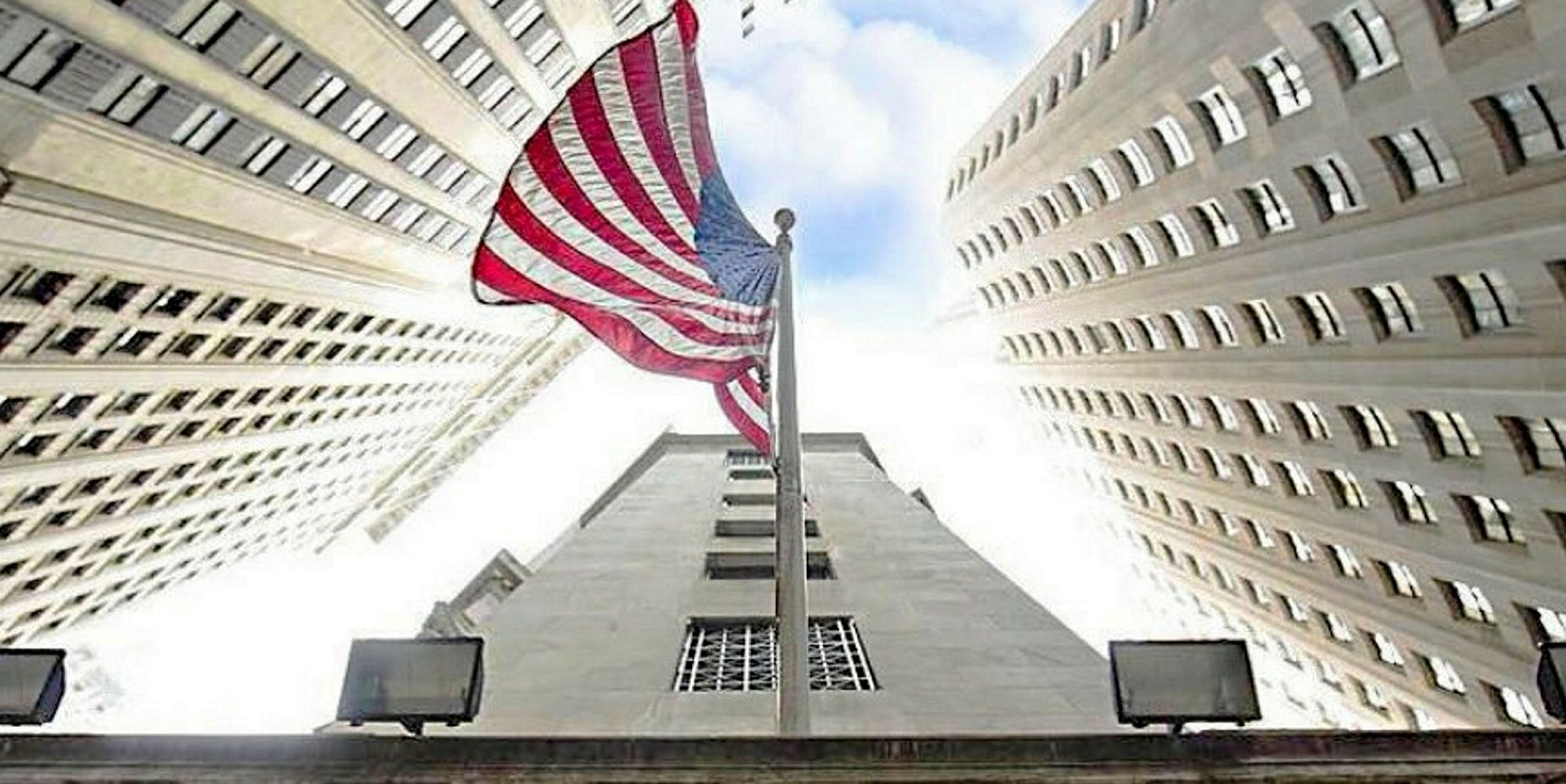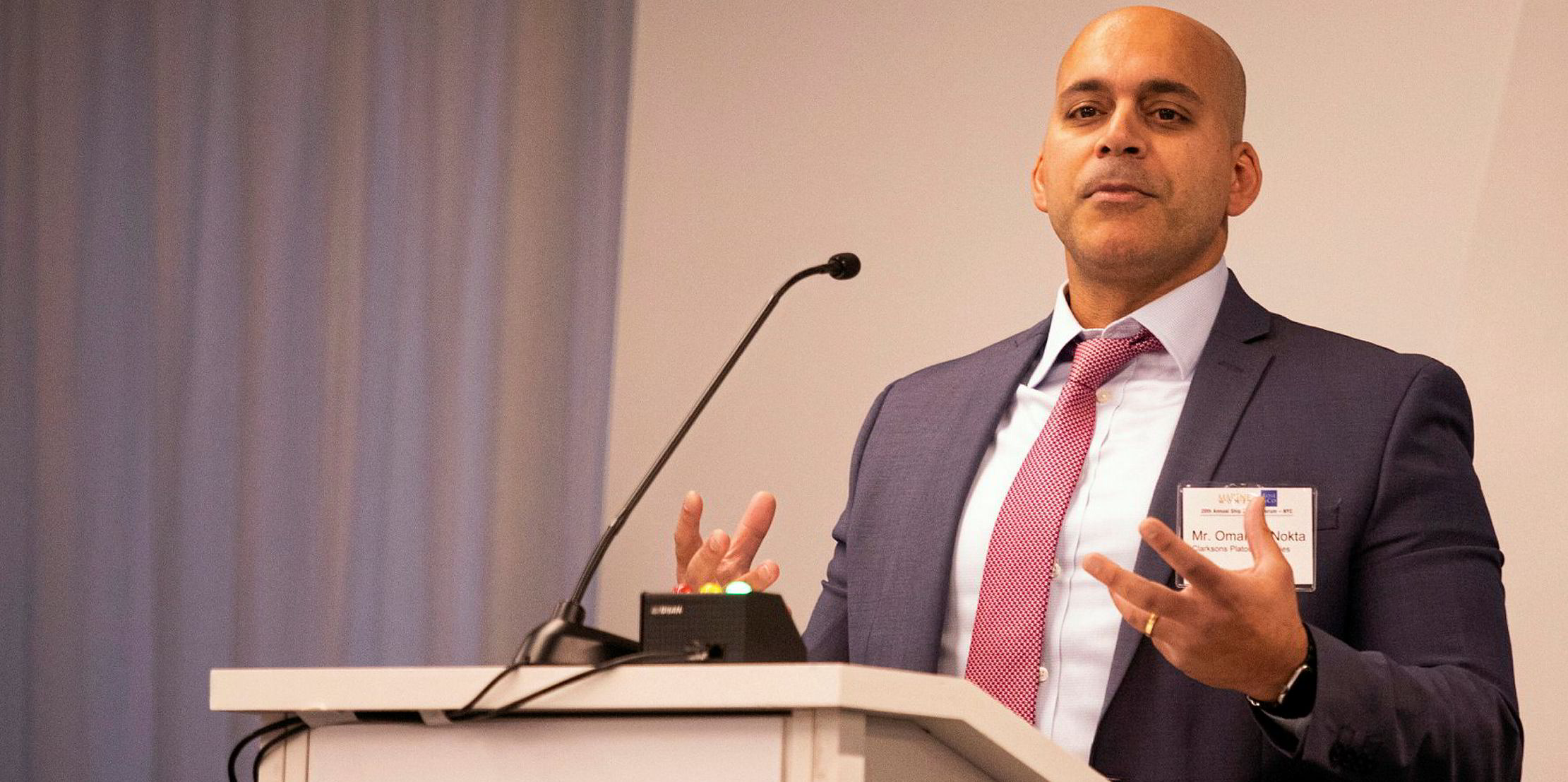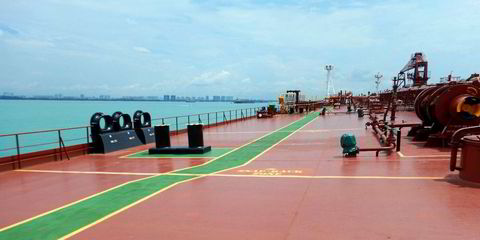This time it’s for real.
That essentially was the message from Frontline Ltd chief executive Robert Hvide Macleod today as he assessed the difference between the current bull run in the tanker market and the temporary surge that sent VLCC rates above $200,000 per day last fall.
“This is not the blip we saw in October,” Macleod said on a conference call with BTIG equity analyst Greg Lewis Monday.
“From what we can see this is real – we’ve just had the busiest week in decades.
“The deals are real. They’ve been confirmed. The ships are en route to load. We’ve not seen a position list this tight for many, many years. We’re very, very confident indeed.”
Macleod’s positivity came during another broad stock market selloff in New York that sent shipping shares to more double-digit losses, including Frontline at some 17%. The Dow Jones Industrial Average plummeted nearly 3,000 points or 12.9%.
Macleod acknowledged the irony as the liftoff in tanker rates fuelled by increased production from Saudi Arabia stands in stark contrast to the global chaos and economic contraction brought by the coronavirus outbreak.
“The world is falling apart, it seems. In the tanker market, it’s just the opposite,” Macleod said.
While VLCCs are getting the most attention with rates around $250,000 per day, Macleod also trumpeted gains in suezmax rates to the $140,000-$150,000 range.
Frontline operates 28 suezmaxes alongside 20 VLCCs and 20 aframaxes and LR2 product tankers.
The John Fredriksen-controlled company is poised to fix 25% of its suezmax fleet within the next 10 days and thus well-positioned to reap strong rates, Macleod said.
The Frontline fleet, averaging four years old, has an all-in breakeven rate of $19,400 per day on average. This means that on an annualized basis, Frontline is printing $23m cash for every $1,000 above that benchmark, Macleod said.
There are supporting factors that suggest the market will last for awhile. Macleod suggests that contango in oil prices will increase VLCCs used for floating storage from a number “in the 20s” today to 40 within two or three weeks. The typical number is 35, he said.
“We’re unlikely to directly participate because we have modern ships,” Macleod said. “But we’re hoping older ships will go out and thus tighten the market.”
The executive also noted that 17% of the VLCC fleet and 20% of the suezmax fleet are scheduled to go through drydocking this year, further tightening supply.
“This could be a tremendous year — we’re set up for it,” Macleod said.
The Saudi developments added to what Frontline already had considered strong fundamentals on the year: “It’s just been boosted big-time,” he said.
Frontline is closing in on having half its fleet equipped with scrubbers. While the owner was saving an average of $400,000 per day earlier this year on scrubber vessels at a time of wider fuel spreads, the nosedive in oil prices has brought the spread between high-sulphur and complaint fuel down to about $100 per tonne. The new average is close to $130,000 per day.
“We’re still saving, but it’s not close to what it once was,” he said.
Asked by Lewis about the disruption caused by coronavirus, including delays and demand destruction, Macleod said Frontline was just beginning to see some of the former.
Turnarounds in ports and crew changes could take longer and there’s a risk of charterers not taking ships that had traded in certain exposed areas.
“It’s slowly coming in,” he said. “We starting to see it and we’re going to see more and more of it in the coming weeks.”
Still, Frontline is not moved to seek out charter coverage just yet, preferring for now to ride the current wave.
“I don’t think the timing is now,” he said. “I strongly believe in this market. I’ve only been doing this for 20 years but I’ve not seen the market like this before.”
Despite all the optimism, Frontline shares took a beating in Monday's trading on the New York Stock Exchange today, down $1.59 to $7.77, a 17% loss.
Frontline had plenty of company on a day of massive losses in US markets as investors increasingly fear that measures to control the virus will not prevent a recession.
Fellow VLCC owners Euronav and DHT Holdings were down more than 13% each, while product tanker owners Scorpio Tankers and Ardmore Shipping were down 22% and 19%.
Declines cut across the sector, with dry bulk owners like Scorpio Bulkers, Star Bulk Carriers, Genco Shipping & Trading and Eagle Bulk all down between 13% and 20%.
Containership owners Danaos (24%) and Costamare (15%) also were in red numbers.
In the cruise sector, Carnival Corp dropped 17%, Royal Caribbean Cruise Lines 7% and Norwegian Cruise Line 5%







